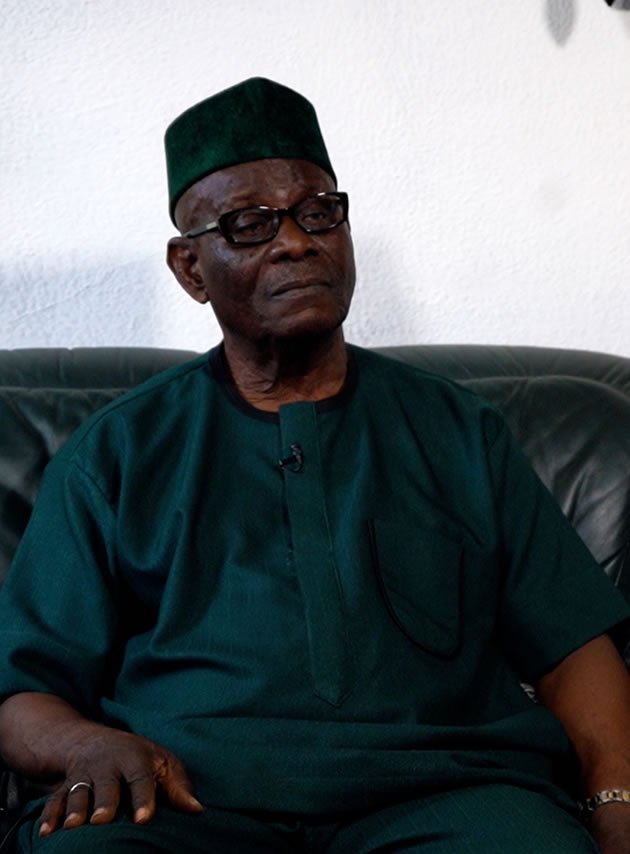
Alhaji Sidiku Buari
My Story
Son of Malik and Amina (deceased) Buari. Born in “Caolin” Accra. AIended Government Boys School from 1949-1956 and African College in Accra from 1957-1961. I became an athlete, after being discovered by the late Ohene Gyan, and represented Ghana at the All-African Games in Dakar, Senegal 1963. Won a silver medal for Ghana at the competition. Later, in 1963 went on to win 1 Gold, and 1 silver for 400m-relay and 400m-flat particularly for Ghana, in Ibadan Nigeria. In 1965, at the All-African Games in Congo, won a bronze medal for Ghana. I left for the U.S.A. in 1966 and studied at Bronx Community College. I have a Master’s in Business Administration and a Diploma in interior decoration. Studied at New York Institute, School of Music.
Radio Corporation of America awarded me my first contract and my first album was a great hit, it was No. 59 on the chart. Released 6 albums in the U.S.A. Returned to Ghana in 1980. Selected as a committee member to look into the evaluation of the Musician Union of Ghana which was non-existent for about 3 years. Dr. Ben Abdullah made the selection which included me, Nana Kwame Ampadu, Joe Mensah, and Fasal Wanie amongst others. A congress was held in Kumasi and the musicians voted for Joe Mensah as president, myself as Vice president, and Nana Ampadu as the general secretary.
It’s always in my heart to push Ghanaian art in the country. My first film, Ayalolo, was the first Ghanaian film to take off or screen commercially at all the cinema companies across the country. Kofi Mens, introduced to me by Bill Marshall, was very instrumental in working on the film. He directed some scenes in the film.
I realized I could make something better in terms of the commercial film after noticing how enthusiastic Ghanaians were about shows like Osofo Daazie, Obra, and Mr. Mensah and it worked. This was how the Ghanaian video production started. Some of the films I produced are Ogboo parts 1 & 2, Ayalolo, Who Is To Blame, Jealousy, Mr TT, and Three Paddies, amongst others. Aayalolo was so successful I ended up building my cinema. We made money from selling the films after screening. The digital system created some problems for us during its introduction.
I produced about 16 films. Ayalolo screened six times a day at the OREON and it ran for about a month. My film “Jealousy” also made a lot of impact. People queued from the Rex Cinema to Parliament House. Other producers were doing fantastic at the time also.
Piracy has always been a problem with the introduction of digitization. I never tried the internet unless you want to sell the rights to your film. The ability to sell films both locally and internationally on video has been halted. Starting from analog and going into digital was difficult and extremely capital-intensive.
The theatre I built influenced the producers because we had a standard and our fees were much lower to screen your film as compared to other cinemas. Film producers made more money by screening at my cinema. We charged about 50 cedis which was a lot of money then. Rex and
Royal cinemas were charging 15-20 cedis. Even though our hall was smaller, the caliber of the audience at Sid Theatre made the difference.
Some of us are negotiating with television stations and streaming platforms such as Nemlix for some of our old films to be reproduced or remastered to meet today’s standards for good returns.
I don’t know whether the film industry exists today. All the cinema houses have turned into church houses. Palladium, Opera Cinema, and Oreon have all been turned into something else. Promoting your film then was easy because we had one television and radio station and everyone was watching, unlike today where there are numerous television and radio stations. If you want to advertise today you’d have to advertise on several channels.
My Filmography
-
YearAayalolo as Producer
-
YearJealousy as Producer
-
YearOgboo Parts 1 & 2 as Producer
-
YearMr. TT as
-
YearThree Paddies as Producer